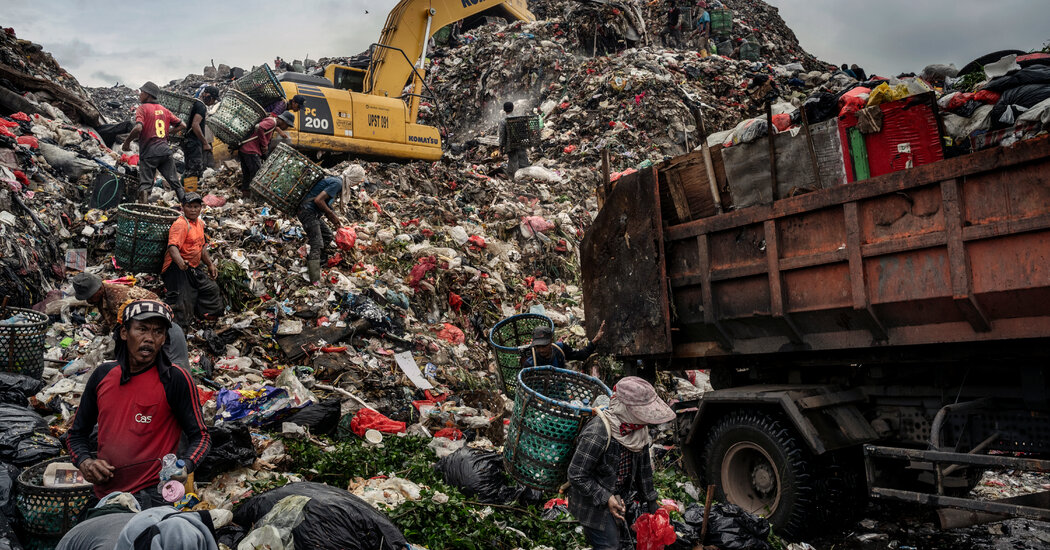Some of this is not, in a sense, news. That much of what passes for responsible waste disposal constitutes “a morality performance,” in Clapp’s words, is something of which many of us have been dimly aware, even as we dutifully file our spent water bottles into the proper receptacle.
What does come as a revelation is just how much money is to be made off trash, who makes it and the sheer variety of their means. In Kosovo, scrap metal “is the economy,” Clapp writes, the country cannibalizing its own industrial infrastructure to the tune of $40 million per annum; in China, government proxies pay “plastic traders to take weeklong tours of Southeast Asian nations to scout out potential warehouses to shred and melt old Western plastic.”
Clapp traces the links in an international daisy chain of pliant governments, dubious corporate interests and deluded consumers, all the while keeping in view the very real human stakes: In Turkey, for example, the author meets the family of 30-year-old Oguz Taskin, who burned to death while dismantling an American cruise ship in a gray-market shipyard.
Equally astonishing, if no less depressing, is just how long this whole sordid business has been going on, and how long some people have been trying to stop it. In its closing pages, “Waste Wars” quotes a former Kenyan president: “We do not want external domination to come in through the back door in the form of ‘garbage imperialism.’” That was in 1988; by then, refuse had already begun accumulating en masse, a crisis that eventually led the country to pass sub-Saharan Africa’s strongest ban on single-use plastic bags.
As an instance of organized, rational resistance to Big Junk, Kenya is not alone, and Clapp documents other noble efforts mounted by local actors the world over. Such attempts, however, face long odds — as they do in Kenya, where the bag ban has been under assault from (of course) plastic manufacturers, who promise enhanced recycling facilities in exchange for the law’s repeal.
